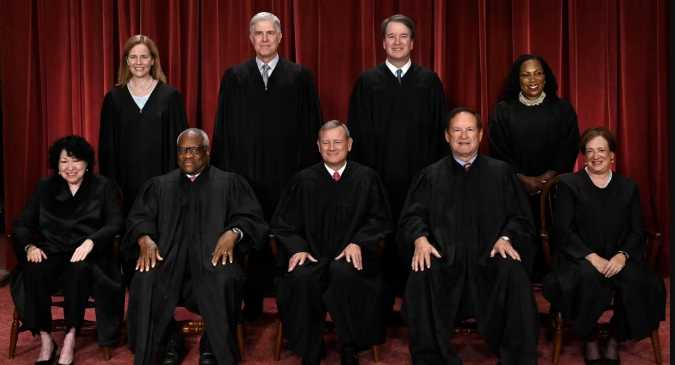The Supreme Court Code of Conduct Act would require the high court to establish its own ethics code; Reach parity with other federal judges who are already required to abide by specific codes of conduct Bill would help restore historically low levels of trust in the Supreme Court

U.S. Senators Angus King (I-Maine) and Lisa Murkowski (R-Alaska) Wednesday introduced bipartisan legislation requiring the Supreme Court to create its own code of conduct, and appoint an official to review potential conflicts and public complaints. Justices of the Supreme Court are currently the only federal judges that are not explicitly bound by a code of conduct which provides guidance on performance of their official duties and engagement in outside activities; the Executive and Legislative branches of government currently abide under similar processes to maintain accountability and public trust in institutions.
“A healthy democracy requires trust: trust in systems, trust in institutions, and trust in leaders. Americans deserve to have confidence that every part of their government – especially the highest court in the land – is acting in an ethical manner,” said Senator King.“In the Federalist Papers, Alexander Hamilton notes that the Judiciary can only be successful if it has ‘the esteem and applause of all the virtuous and disinterested.’ With trust in the Supreme Court reaching historic lows, I worry we’re getting dangerously far from this fundamental vision. The Supreme Court Code of Conduct Act is a commonsense step to restore and maintain faith in the high court by requiring the creation of consistent, transparent rules like the ones that apply to every other federal judge across our democracy. The other two branches of government already have codes of conduct, it is only reasonable the full Judiciary should as well. I appreciate Senator Murkowski’s partnership on this bipartisan effort to strengthen our institutions and protect the vision of our founders.”
“The American public’s confidence in the Supreme Court is at an all-time-low. Americans have made clear their concerns with the transparency—or lack thereof—coming from the Supreme Court and its justices,” said Senator Lisa Murkowski.“It is critical the public has full faith that their institutions are functioning, including the judicial branch. The Supreme Court must demonstrate independence and fairness as they rule on the laws of the land—and any cracks in the public’s confidence will have damaging repercussions for the state of our democracy. That’s why I’m proud to join Senator Angus King on this bipartisan effort to require our highest court to establish its own ethics code, following the practices of the other federal courts and the Legislative and Executive branches, while also working to restore the public’s confidence in the integrity and impartiality of our judiciary.”
The Supreme Court Code of Conduct Act would:
- Require the Supreme Court to implement a code of conduct within one year from the date of enactment.
- Require the Supreme Court to publish their new code on their website, making sure it is available to the public.
- Require the Supreme Court to name an individual to handle any complaints of violations of the code. This person will accept information or complaints from the public that allege violations of the code by a Supreme Court justice, or violations of other federal laws.
- This person will be required to publish an annual report—posted on the Court’s website—describing the information and complaints they received and actions taken to remedy the conduct. Complaints will be anonymized to protect people reporting potential misconduct.
- Give the Supreme Court authority to initiate investigations, as needed, to determine if any Supreme Court Justices or staff may have engaged in conduct that is prejudicial to the administration of justice or that violates other federal laws or codes of conduct.
[content id=”79272″]






